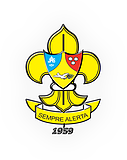Volunteer Work

Escoteiros Antônio Vieira – EAV 15º BA
Leisure Courses and Cultural Programs
Cuisine: Salvador has its own authentic culinary tradition. No other state in Brazil has a culinary tradition that is as diverse as that of Bahia. Bahian cuisine has strong African and Portuguese cultural influences, and to a lesser extent (compared to other regions of Brazil), influences from indigenous cultures. The Africans brought a taste for strong flavors, especially palm oil and peppers. Moreover, it was the strong connection between food and religion (many dishes are made as offerings to Afro-Brazilian deities) that were passed down for generations (as the slaves wrote no books), surviving unchanged to today. The indigenous peoples used mostly local fruits, plants and fishes. The Portuguese people brought along the tools used for cooking (ovens and pans), as well as the use of sugar. ICI invites its students to sample Bahia’s rich cuisine. The classes are taught by one of our Portuguese language instructors, who will teach the basic vocabulary of the ingredients, as well as their preparation.
Percussion: Percussion instruments are frequently used in Brazilian music, especially samba. Some examples of these instruments are large bass drums, rattles, repinique, tambourine, agogô, pandeiro, cuíca, etc. These classes cover various Brazilian rhythms, including samba-reggae, candomblé, forró, samba enredo, maracatu, samba de roda, ijexá, and others. This course is recommended for those who appreciate Brazilian rhythm and would like to know more about these instruments.
Surfing: We have a partnership with a surfing school located on the northern seashore of Salvador. The classes are offered on weekends in a “surf camp”, where the student will not only have classes, but also have the chance to enjoy a weekend on one of the most beautiful beaches of Bahia. The weekend package includes classes, accommodation and meals. For more information, please check with the reception desk at the school.
Diving: We have a partnership with one of the best diving schools in Bahia. They have daily dives at various points in the Baia de Todos os Santos, including the famous Cavo Artemide and Galeão Sacramento shipwrecks. As well, there are beautiful coral reefs that are located in the waters off of the Salvador coast, full of marine life. There are classes available for divers of all levels. The student will have the chance to combine their morning Portuguese classes with dive classes in the afternoon or on weekends. This course also offers open water diving certification (PADI / NAUI / SSI, recognized worldwide), at a maximum depth of 18 meters. Courses are also offered for those who already have this certification. Note: The courses can be given in English.
Cultural Visits and Excursions
Examples of visits offered:
Visit of churches and museums in Salvador; Candomblé ceremonies;
Tour of the most traditional bars and restaurants in Salvador.
Musical events;
Folk music presentations that show the wide variety of music in Brazilian culture.




